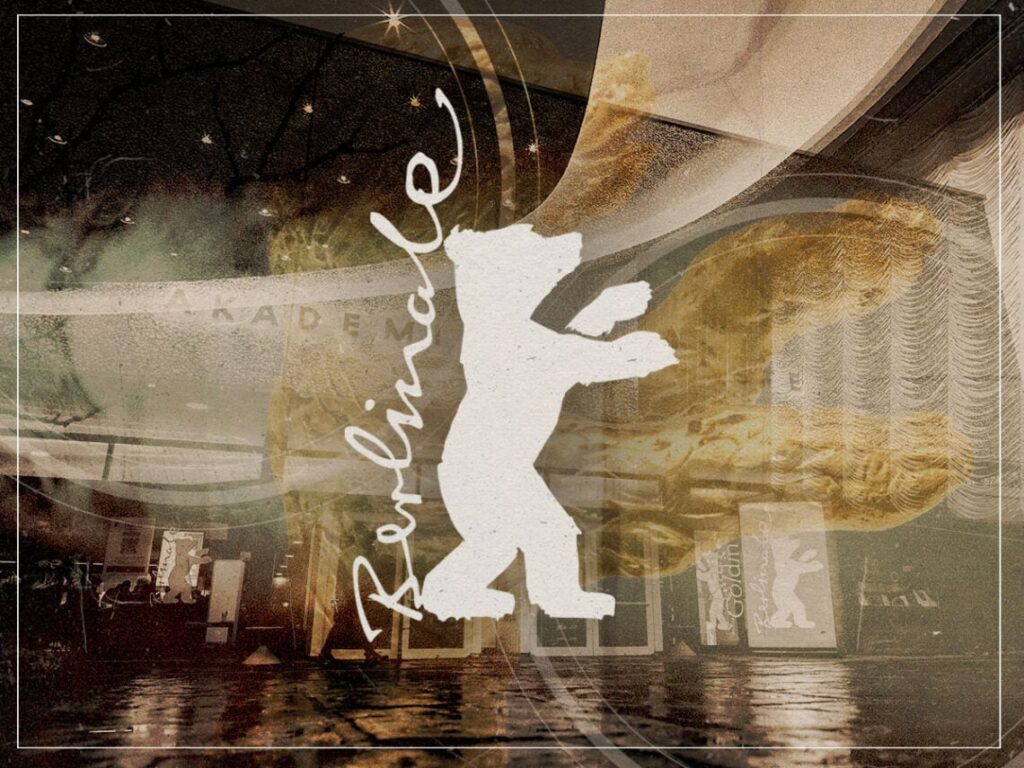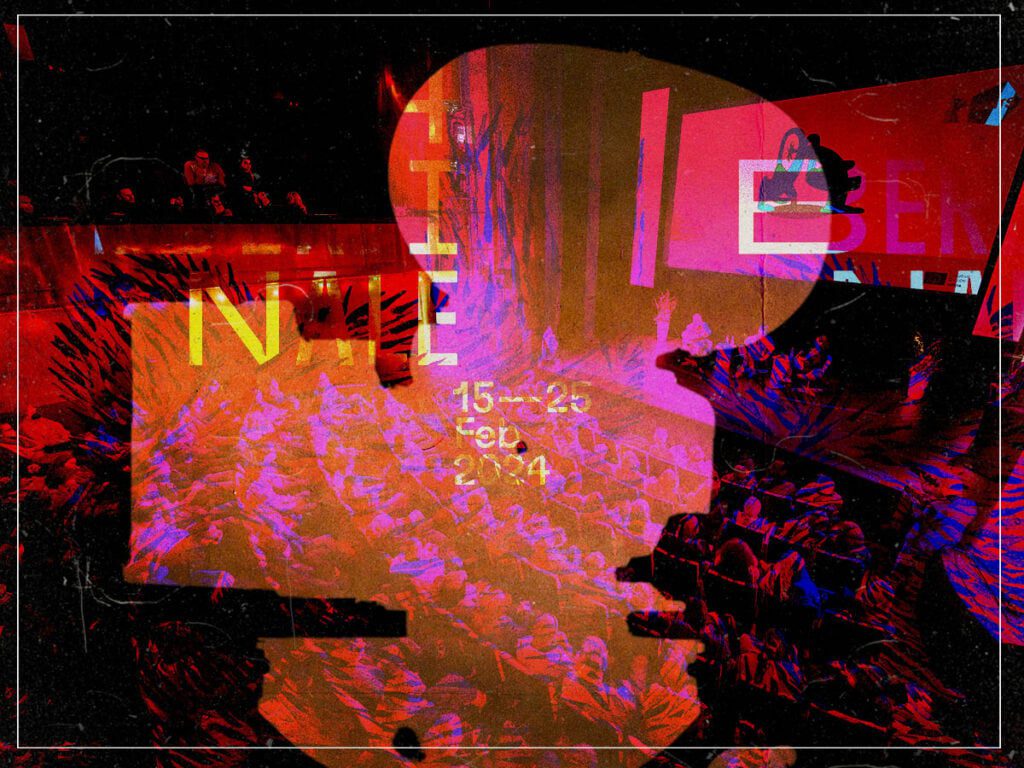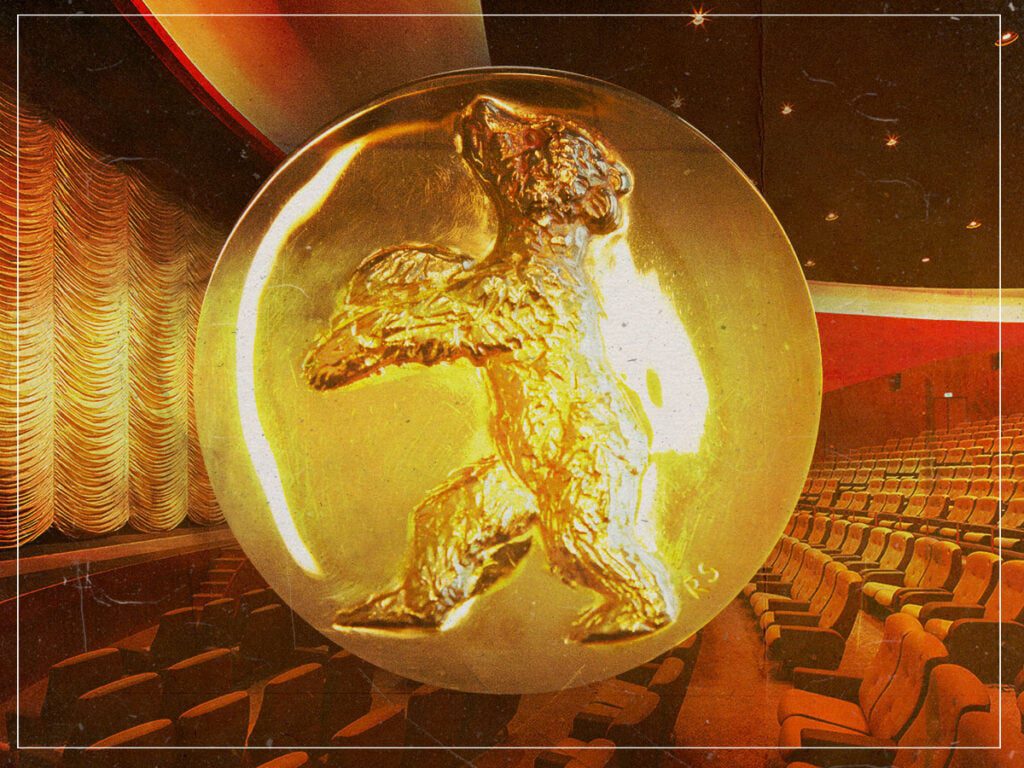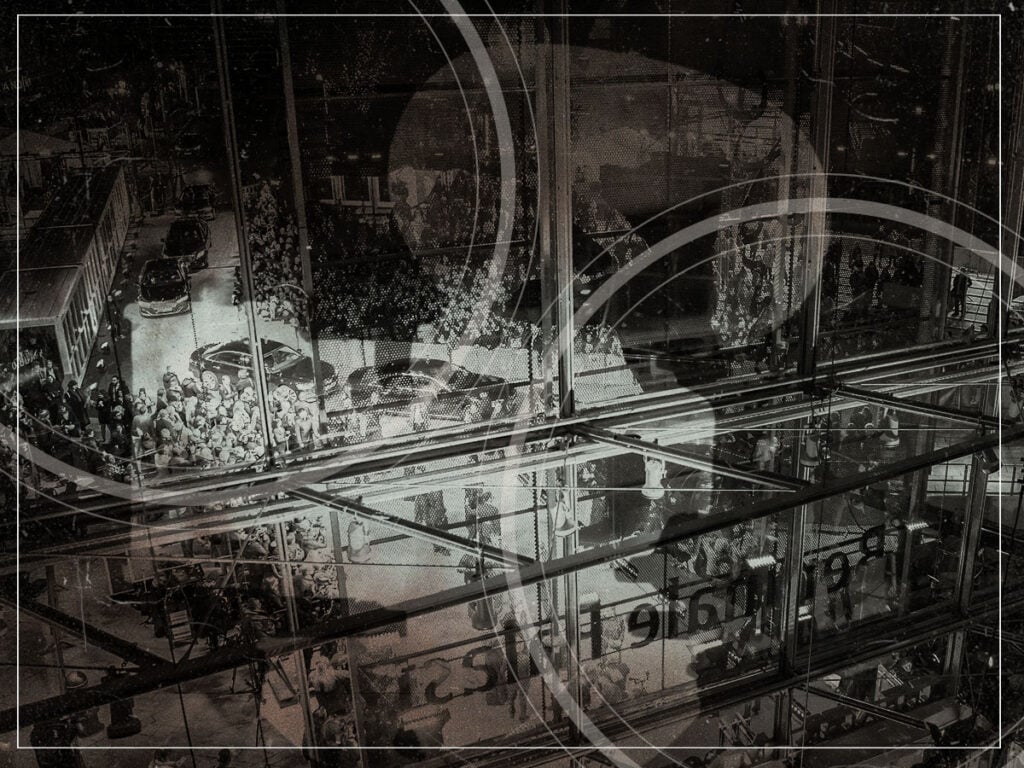Berlin 2024: The history of the Berlin Film Festival
 Posted On
Posted On
(Credits: Far Out / Berlin International Film Festival)
The celebrated Berlin Film Festival is recognised as one of the ‘Big Five’ of its kind across the world, joining the likes of Sundance, Cannes, Venice and Toronto, each celebrating the very best of arthouse cinema. While many of these festivals do include films from mainstream film studios, they are primarily used for indie filmmakers to showcase their work so that it can be acquired by a distribution company.
An esteemed and celebrated festival, Berlinale, as it is commonly known, has played host to the most celebrated filmmakers of contemporary cinema throughout its history, including Ingmar Bergman, Jean-Luc Godard and Paul Thomas Anderson. Such names have each walked away with the ‘Golden Bear’, Berlin’s equivalent of the Oscars’ ‘Best Picture’, while also claiming ‘Silver Bears’, which are dished out for exemplary acting, writing and production.
Hosting approximately 400 movies each, the Berlin Film Festival regularly draws in punters in the tens of thousands, including critics eager to be the first in the world to see a specific movie or regular movie lovers wanting to envelop themselves in contemporary cinema. Since having to move online in 2021 following the devastating effects of the global Covid-19 pandemic, the Berlin Film Festival has returned to its former glory, with recent ‘Golden Bears’ having gone to Carla Simón’s Alcarràs and Nicolas Philibert’s On the Adamant.
In its 74-year history, the festival has helped publicise and distribute some of the finest movies of all time, helping to uphold the cultural and artistic importance of the art form of cinema.
When did the Berlin Film Festival start?
The very first iteration of the Berlin Film Festival occurred on June 6th, 1951, at the Titania-Palast in Steglitz, a borough in the southwest of the city. Opening with a screening of Alfred Hitchcock’s two-time Oscar-winner Rebecca, the festival ran for 11 days until June 17th, with the top prize of the ‘Golden Bear’ being divided into five winners decided by genre, with Disney’s Cinderella taking home the lion’s share of awards, including the audience-decided trophy.
Oscar Martay, a film officer at the American High Commissioner for Germany, was the man behind the idea, proposing it to a committee during the height of the Cold War. Managing to convince a committee of influential figures, the American used his influence to get the American military administration on board, who agreed to provide funding for the formative years of the festival.
From the dawn of the festival until 1955, the winners of the ‘Golden Bear’ were decided not by a jury made up of industry professionals but by audiences, with this coming to an end in 1956. Winners during this period of time included Disney’s aforementioned Cinderella, Arne Mattsson’s One Summer of Happiness, Henri-Georges Clouzot’s The Wages of Fear and David Lean’s Hobson’s Choice.

Who has won the most ‘Golden Bears’?
The recipient of the most ‘Golden Bears’ at the Berlin Film Festival is Ang Lee, winning the award on two occasions three years apart, in 1993 and 1996. Indeed, despite the festival being 74 years old, inviting countless iconic directors through its doors, it’s quite remarkable that only one filmmaker has taken home the ‘Golden Bear’ on two occasions, yet this shouldn’t dampen Lee’s remarkable achievement.
Lee’s first win came with the release of the romantic comedy The Wedding Banquet, starring Winston Chao, Ah-Lei Gua and May Chin, with the Taiwanese film telling the story of a gay landlord who agrees to marry his female tenant in order to satisfy his nagging parents. Also winning ‘Best Narrative Feature’ at the Taipei Golden Horse Film Festival and receiving a nod for ‘Best Foreign-Language Film’ at the Oscars, The Wedding Banquet opened the door for further success for Lee.
Such came just three years later with 1996’s Sense and Sensibility, a film which saw even greater critical and commercial acclaim. A period drama written by Emma Thompson and adapted from the iconic Jane Austen novel, Lee’s film tells the story of a wife and three daughters who are left poor after the death of the husband, with the movie winning ‘Best Adapted Screenplay’ at the Oscars to go along with its ‘Golden Bear’.

Where is the Berlin Film Festival?
Discarding the obvious, the Berlin Film Festival takes place in Potsdamer Platz, with each of the major competition films being screened at the Berlinale Palast, the epicentre of German cinema. The red carpet events are also held in this venue, while The Forum, the experimental arm of the festival, shows films at the Arsenal in the Sony Center, and press screenings are held at the CinemaxX cinema in Potsdamer Platz.
In efforts to decentralise the festival, other venues across Berlin have also taken part in recent years, including The Haus der Kulturen der Welt and The Verti Music Hall in Friedrichshain. A number of other stunning cinemas also take part, such as the Colosseum in the east of the German capital and Silent Green in the north, helping to make the Berlin Film Festival one of the most unique and vibrant in the world.

When is the Berlin Film Festival?
The Berlin Film Festival takes place annually in February and, in 2024, will run from February 15th to February 25th.
It is the second of the ‘Big Five’ film festivals, coming shortly after the Sundance Film Festival of Park City, Utah. Following the completion of Berlinale, the celebrated Cannes Film Festival will begin in May, often drawing the largest crowds and industry attention, before the Venice and Toronto celebrations see out the year almost simultaneously in August and September.
[embedded content]


